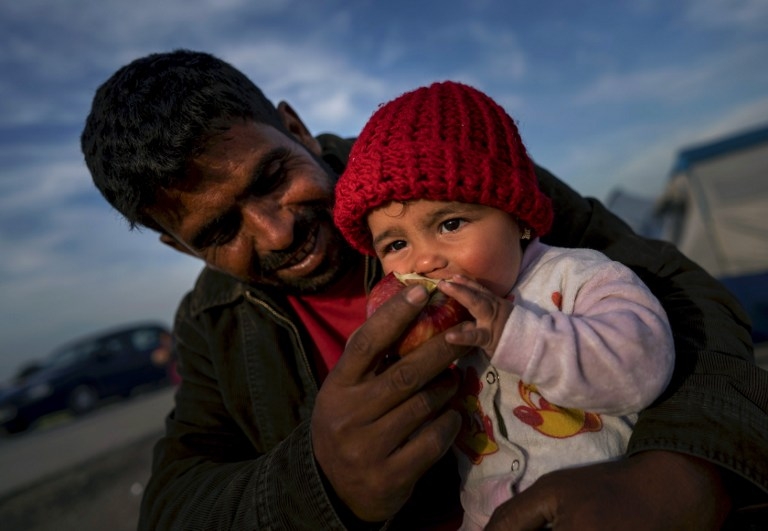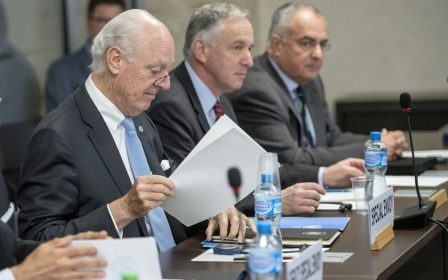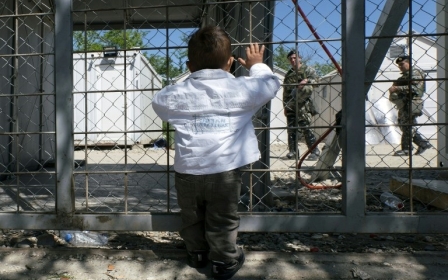UN chief criticises 'increasingly restrictive' EU refugee policies
Austria has introduced tough new rules for migrants and refugees, which Austrian leaders have said are necessary due to EU failings

A refugee feeds his baby with an apple at sunset at a makeshift camp for migrants and refugees at the Greek-Macedonian border (AFP)
Published date: 28 April 2016 09:18 BST
|
Last update: 8 years 7 months ago
UN chief Ban Ki-moon hit out on Thursday at what he called "increasingly restrictive" refugee policies in Europe as the continent faces its worst migrant and refugee crisis in decades.
"I am concerned that European countries are now adopting increasingly restrictive immigration and refugee policies," Ban said in a speech to the Austrian parliament.
"Such policies negatively affect the obligation of member states under international humanitarian law and European law."
His comments came a day after the Austrian parliament adopted one of Europe's toughest asylum laws, as the country's political leaders struggle to halt the surging far-right which is leading in presidential polls.
The hotly-disputed bill, which passed by 98 votes to 67, allows the government to declare a "state of emergency" if migrant numbers suddenly rise and reject most asylum seekers directly at the border, including those from war-torn countries like Syria.
If the mechanism is triggered, border authorities will only grant access to refugees facing safety threats in a neighbouring transit country or whose relatives are already in Austria.
Some groups including minors and pregnant women will be exempt from the rule.
The restrictions are similar to tough rules introduced by the right-wing government in neighbouring Hungary last year.
In addition, MPs also voted to restrict existing asylum laws by placing limits on the length of asylum granted to migrants and making it harder for their families to join them.
Opposition parties and rights groups slammed the legislation, with the UN's refugee agency warning that it "removes a centrepiece of refugee protection".
But Interior Minister Wolfgang Sobotka insisted Austria had no other choice as long as "so many other European Union members fail to do their part" to stop the influx.
Wedged between Europe's two main refugee routes - the Balkans and Italy - Austria received around 90,000 asylum requests in 2015, the second-highest in the bloc on a per capita basis.
More than a million people, primarily from Syria, Iraq and Afghanistan, landed in Europe last year, triggering the continent's worst migration crisis since the aftermath of World War II.
To reduce the flow, the EU recently struck a controversial deal with Ankara, under which all irregular migrants reaching Greece after 20 March will be returned to Turkey.
Although the pact has led to a sharp drop in arrivals, the International Organisation for Migration last week warned that the numbers were starting to rise again.
The crisis has boosted populist fringe parties across Europe, pressuring traditionally centrist governments to adopt a much firmer stance on migrants.
New MEE newsletter: Jerusalem Dispatch
Sign up to get the latest insights and analysis on Israel-Palestine, alongside Turkey Unpacked and other MEE newsletters
Middle East Eye delivers independent and unrivalled coverage and analysis of the Middle East, North Africa and beyond. To learn more about republishing this content and the associated fees, please fill out this form. More about MEE can be found here.




